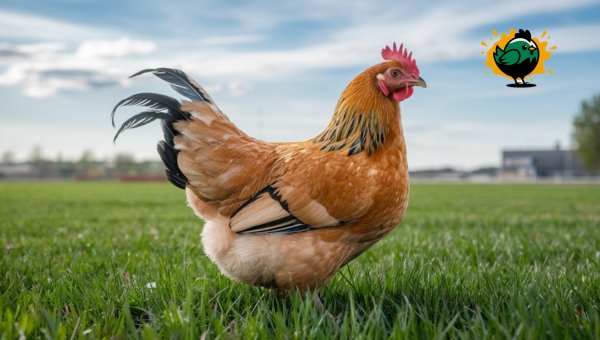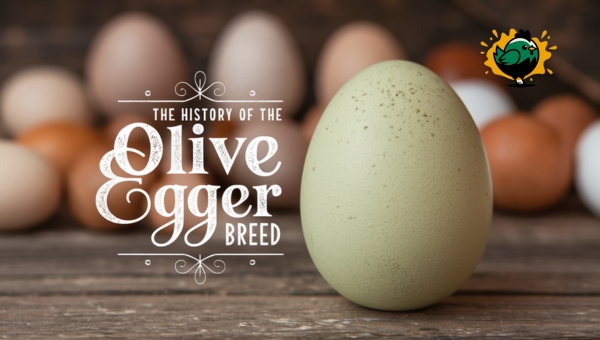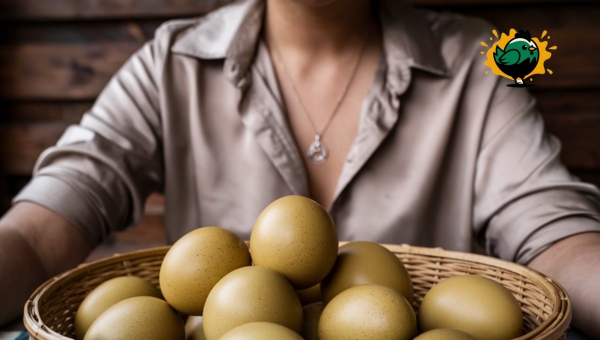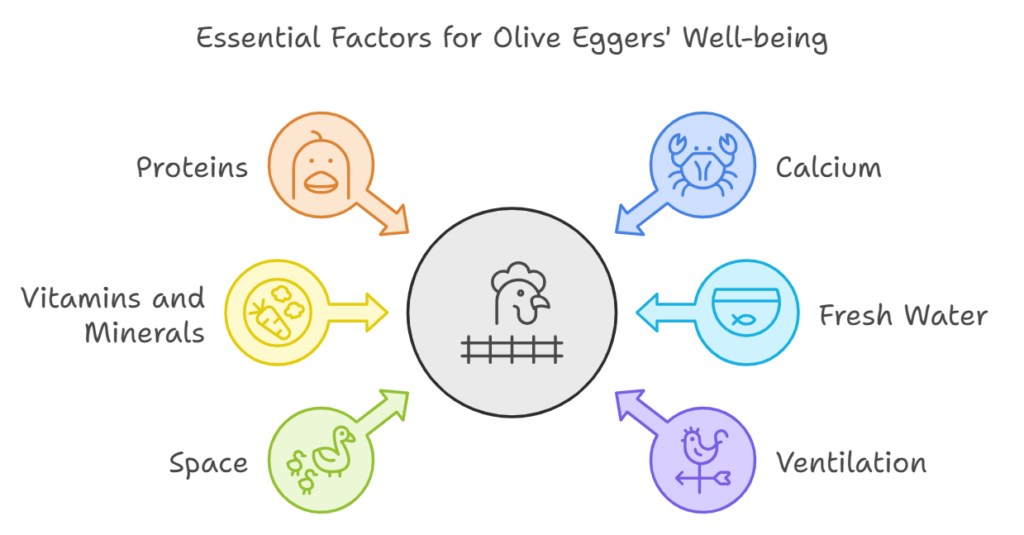Olive Egger Wonders – Explore Their Fascinating Traits

Walking into your backyard and discovering eggs in shades of olive and green nestled among the traditional whites and browns. This captivating scene could be a reality with Olive Eggers, a breed known for their unique egg colors.
These chickens are not just a sight to behold but also a testament to the wonders of crossbreeding. Whether you’re a seasoned poultry enthusiast or a curious beginner, the Olive Egger offers an intriguing blend of history, genetics, and beauty. Let’s delve into this fascinating breed and uncover why they might be the perfect addition to your flock.
The History of the Olive Egger Breed
The Olive Egger chicken is a fascinating result of intentional crossbreeding between breeds like the Ameraucana or Araucana and Marans. This combination was crafted to produce hens that lay eggs in distinctive shades of olive.

Originating in the United States, the Olive Egger has gained popularity due to its unique egg color. This breed does not have a long historical pedigree since it is relatively new and not recognized as a pure breed.
Nonetheless, its popularity continues to rise among backyard poultry enthusiasts and small-scale farmers. The allure of the Olive Egger lies in its ability to add a splash of color to egg collections, making it a sought-after choice for those interested in diverse egg baskets.
Characteristics Of Olive Eggers
When exploring the world of Olive Eggers, it’s important to appreciate their distinct features. These fascinating chickens are known for their unique physical traits and the remarkable eggs they produce. Let’s delve into their appearance and the characteristics of their eggs.
Physical Appearance
Olive Eggers are a delightful mix of various breeds, resulting in a variety of appearances. Typically, they showcase a blend of colorful plumage, often featuring shades of black, blue, or brown. Their feathers can be fluffy, giving them a charming look.
Additionally, Olive Eggers can vary in size, but they usually have a medium build. Their combs and wattles also vary, often taking on different shapes and sizes depending on their genetic background.
Egg Color And Size
One of the standout features of Olive Eggers is their eggs. As the name suggests, these chickens lay eggs with a beautiful olive hue, which is highly sought after by enthusiasts. The exact shade can range from light olive to deep green.
In terms of size, Olive Egger eggs are generally medium to large, providing a good amount of yolk. This unique combination of color and size makes Olive Egger eggs a popular choice for those looking to add variety to their egg basket.
Breeding Olive Eggers
Breeding Olive Eggers involves a delightful blend of science and art. These chickens are renowned for their distinct egg color, and creating them requires specific crossbreeding methods.

By understanding the common crossbreeds and the genetics involved, you can produce Olive Eggers with the desired traits. Let’s take a closer look at popular crossbreeds and the genetic elements that give these eggs their unique hue.
Popular Crossbreeds
To produce Olive eggs, breeders often cross Marans, which lay dark brown eggs, with Ameraucanas or Araucanas which lay blue eggs. This combination typically results in hens that lay olive-colored eggs.
Each crossbreed can vary, making it important to select breeds with strong genetic traits to achieve the desired outcome. This careful selection ensures that Olive Eggers maintain their signature egg color and quality.
Genetics Behind The Color
The color of Olive Egger eggs is influenced by several genetic factors:
- Eggshell Base Color: The base color, such as blue or brown, plays a significant role.
- Pigmentation Layers: The overlay of pigments determines the final shade.
- Genetic Dominance: Dominant genes can affect the egg’s final color, often resulting in the olive hue.
Understanding these genetic components is crucial for achieving the characteristic olive shade in the eggs.
Also Read: Fairy Eggs | A Chicken Keeper’s Guide to the Oddities
Care And Management
When it comes to the well-being of Olive Eggers, providing the right care and management is essential. Ensuring they have the right nutrients and a comfortable living space plays a significant role in their health and productivity. Let’s dive into the feeding needs and the ideal housing conditions for these unique chickens.

Feeding Requirements
For Olive Eggers to thrive, they require a balanced diet. Here’s a breakdown of their essential dietary needs:
- Proteins: Vital for growth and egg production. Ensure their diet includes a good source of proteins such as soybean meal or fish meal.
- Calcium: Crucial for strong eggshells. Incorporate oyster shells or limestone in their feed.
- Vitamins and Minerals: Provide a well-rounded commercial poultry feed that includes necessary vitamins and minerals.
- Fresh Water: Always ensure access to clean and fresh water.
Housing And Environment
Creating a safe and comfortable environment is key to raising healthy Olive Eggers. Consider these factors for their housing:
- Space: Each bird should have adequate space to move around, ideally 4 square feet per chicken inside the coop.
- Ventilation: Proper airflow is necessary to prevent respiratory issues. Ensure the coop has good ventilation.
- Bedding: Use clean and dry bedding materials like straw or wood shavings to keep the coop hygienic.
- Protection: Safeguard them from predators with secure fencing and a sturdy coop structure.
Benefits Of Raising Olive Eggers
Raising Olive Eggers can be a rewarding experience for several reasons:
- Unique Egg Color: Olive Eggers are known for their distinct greenish-brown eggs, adding variety to your egg basket and making them a conversation starter.
- Egg Production: They are generally good layers, providing a steady supply of eggs, which can be beneficial for both personal use and small-scale selling.
- Genetic Diversity: As a hybrid breed, Olive Eggers bring genetic diversity to your flock, often resulting in healthier and more resilient chickens.
- Aesthetic Appeal: With their varied and attractive appearance, they can enhance the visual appeal of your backyard flock.
- Adaptability: Olive Eggers tend to adapt well to different climates and environments, making them a versatile choice for various regions.
Overall, Olive Eggers offers practical benefits along with the joy of raising a distinctive and productive breed.
Conclusion
Olive Eggers are a fascinating addition to any backyard flock. With their unique egg colors and charming personalities, they bring both beauty and productivity. Understanding their history, characteristics, and care requirements is essential for anyone interested in raising these delightful birds.
Whether you’re a seasoned poultry enthusiast or a curious beginner, the Olive Egger offers a rewarding experience. They are not only a visual treat but also a testament to the wonders of crossbreeding and genetics.
If you found this information helpful, explore more articles on our site for further insights into the captivating world of poultry and beyond!
